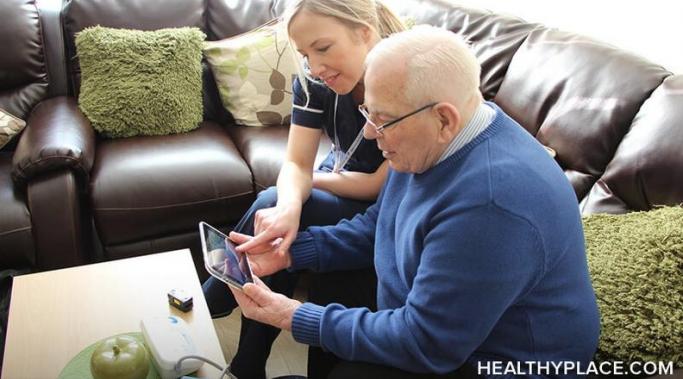I was admitted to a psychiatric hospital for the first time in college. Because I went to an out-of-state university, my family was unable to help, so a friend took me to a psychiatric hospital. Both my family and my friend had concerns: How long was I going to be there? What was going to be done to keep me from committing suicide? What exactly could I expect? Here are three things families and friends need to know about psychiatric hospitalization.
Recovery Issues
Mental health is related to the struggle for gay rights. Unless you've been living under a rock for the past few days, you've heard that my state, Indiana, has passed S.B. 568, the Religious Freedom Restoration Act, a law allowing people to discriminate against lesbian, gay, bisexual and transgender (LGBT) individuals in the name of religious freedom. On Saturday, I marched with about 3,000 of my new best friends to protest this, even though I am not part of that community. I marched because I understand that mental health has a connection to the struggle for gay rights. Here are three cases where the struggle for gay rights is directly relevant to mental health.
The lack of motivation that can be caused by depression and other mental illnesses can be debilitating. There are some things that are so important they must be done as soon as possible. But for those who battle depression, the lack of motivation can be an enemy that seems insurmountable at times (Depression Can Drain You of Your Will to Live). Here's what to do when depression causes a lack of motivation.
Some years ago, the notion of peer support for the mentally ill became an important component of mental health recovery. The mental health community has embraced peer support as crucial to mental health recovery but how valuable is it?
It's the opportunity of a lifetime. I'm in the process of raising money for a mission trip to Kenya. There are several obstacles, but I'm guardedly optimistic (How Not to Expect Too Much From Yourself). This opportunity--and the challenge that comes with it--made me think about healthy goals and reasonable expectations when recovering from mental illness. I've come to three conclusions.
This past week brought a lesson in how vital self-care is to mental health and mental health recovery. Self-care can be overlooked when we are suffering from depression or experiencing other mental illness symptoms. I have a dear old friend who many consider the sweetest person they’ve ever known or may ever know. This dear woman has always been the type who will go to the ends of the earth to help people, and not just friends and family.
Recently I had an upper endoscopy to find out why I was having stomach pain and nausea. The study basically confirmed what I already knew--there is inflammation in my stomach. Someone remarked to me "It must be good to know it's not all in your head!" That made me think about what often happens when psychiatric patients need medical treatment.
Recently TheAtlantic.com published an article titled, Should the US Bring Back Psychiatric Asylums? The article talks about the cynicism surrounding long-term psychiatric facilities, the consequences of de-institutionalization (homelessness and incarceration), as well as the need for such psychiatric facilities. So the question is, should we open more long-term psychiatric facilities?
Like it or not, other people often have input in our mental health treatment. For example, my mother once contacted a psychiatrist and told her my symptoms. Without talking to me, the psychiatrist told my mother what changes she would make. I confronted her and she later told my mother I had an attitude problem (ironically enough, this psychiatrist told my mother my borderline personality disorder (BPD) was caused by poor parenting). Long story short, I fired her. But you can't really blame my mother. She wanted what was best, even if it meant the psychiatrist broke confidentiality in a non-emergency situation. It raises an interesting question: should other people have input in your mental health treatment?
Those of us in mental health recovery are often faced with the hardships our symptoms can cause us. It can be easy to get discouraged, to look at our progress in recovery and tell ourselves, “I’m never going to overcome this mental illness.”









